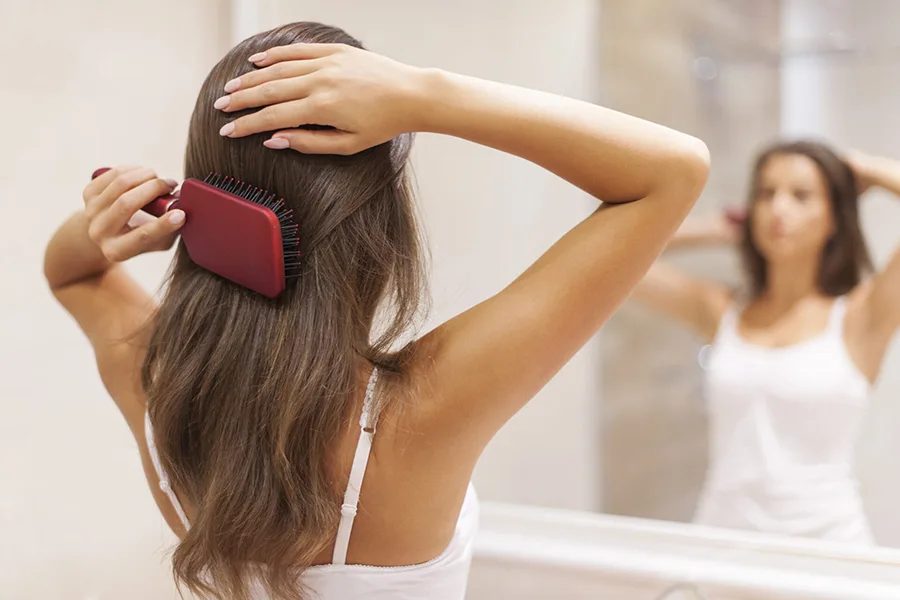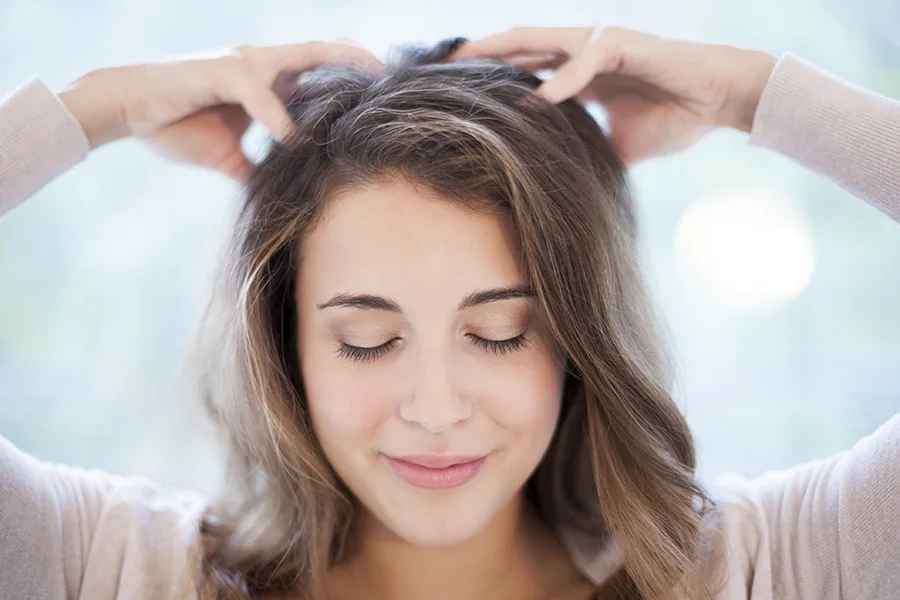Hair grow is a natural process that differs from person to person. While some may experience effortless hair growth, others may encounter challenges with seemingly slow progress. If you’ve ever considered the question, “Why is my hair not growing?” or “What are the reasons for slow hair growing?” know that you are not alone. This article will explore the different factors that affect hair growth and offer valuable insights into creating a healthy environment for your hair to prosper.
How Much Does Hair Grow in a Month?
On average, hair tends to grow at a rate of about half an inch (1.25 centimeters) per month. This translates to approximately 6 inches (15 centimeters) of hair growth in a year.
However, it’s important to note that this is just a general average, and some individuals might experience slightly faster or slower growth. The rate at which hair grows can vary widely from person to person and can be influenced by genetics, age, overall health, and hormonal balance.

Common reasons for slow hair growing
1. Genetics
It’s essential to recognize that genetics play a significant role in hair growth and cannot be ignored. Like other physical traits, your hair growth patterns are primarily determined by your genes. If your family members suffer from slow hair growth or hair loss, you may likely experience the same problems. Even though you cannot change your genetics, understanding it can assist you in managing your expectations and taking the necessary measures to improve your hair’s health.
2. Nutrition and Diet
To achieve overall health, obtaining the proper nutrients, especially those that contribute to healthy hair growth, is important. Insufficient biotin, vitamin D, iron, and zinc levels can cause hair to become brittle and grow slowly. A balanced diet rich in fruits, vegetables, lean proteins, and whole grains can provide the necessary blocks for healthy hair growth.
3. Stress and Lifestyle
Chronic stress can affect many parts of your health, including your hair. Stress can disrupt the hair growth cycle, leading to shedding and slower growth. Stress-reducing practices like exercise, meditation, and adequate sleep can positively impact your hair growth rate.
3. Hormones
Hormonal fluctuations, such as those experienced during pregnancy, can influence hair growth. A hormone imbalance like polycystic ovary syndrome (PCOS) or thyroid disorders can also play a role in hair growth patterns.
4. Hair Care Habits
Maintaining healthy hair requires gentle handling, staying away from frequent heat styling, and using sulfate-free and nourishing hair products. Overstyling, excessive use of hair dryers and curlers, harsh chemical treatments, and hair dyes can cause damage to the hair shaft, leading to breakage and stunted growth. Avoiding these damaging practices and sticking to a healthy hair care routine to keep your hair healthy and strong.
5. Medications and Medical Conditions
Certain medications and underlying medical conditions can impact hair growth. Chemotherapy, for instance, can temporarily halt hair growth, or Some hormonal drugs, such as birth control pills, antidepressants, and Alopecia can affect the rate of hair growth and slow hair growing.
6. Age
As we grow older, the rate of hair growth tends to slow down. This is a natural process influenced by hormonal changes and decreased cell turnover. While aging cannot be reversed, adopting a healthy lifestyle can help alleviate the impact of age-related hair changes.
7. Hair care while sleeping
Hair care while sleeping is one of the important factors in preventing hair damage.
- Never sleep with wet hair.
- Braid your hair while you sleep to prevent breakage and pulling.
- Use a satin pillowcase
- Wash your pillowcase once a week.

What can you do for faster hair growth?
Balanced Nutrition
Consume a diet rich in proteins, vitamins, and minerals that support hair health. Add eggs, fish, nuts, leafy greens, and whole grains to your meals.
Proper hair care
Use mild shampoos, conditioners, and avoid excessive heat styling. Be gentle when brushing or combing your hair, especially when it’s wet.
Regular Exercise
Physical activity improves blood circulation, which can contribute to healthy hair follicles.
Stress Management
Incorporate stress-reduction techniques into your routine, such as yoga, meditation, or spending time in nature.
Hydration
Drink adequate water to keep your body and hair hydrated.
Consult Professionals
If you suspect an underlying medical condition or have concerns about your hair growth, seek guidance from a dermatologist or healthcare provider.

Scalp Massage for Hair Grow
Scalp massage is an effective technique that can greatly benefit hair growth. Applying light pressure to the scalp can stimulate blood circulation, encourage nutrient delivery to hair follicles, and reduce stress levels, all contributing to a healthier scalp environment for hair growth. Incorporating regular scalp massages into your routine can provide a soothing experience while potentially supporting your hair’s natural growth cycle.
You can use some herbal oils while massaging the scalp. These oils strengthen the hair roots and increase hair growth.
Nourishing Oils for Hair Growth:
- Jojoba Oil
- Rosemary Oil
- Amla oil
- Argan Oil
- Jojoba Oil
- Coconut Oil
- Avocado Oil

Regular use of shampoos with sulfate can be harmful to your hair.
shampoos with sulfate remove natural and beneficial hair oils. It is better to wash your hair twice a week and use sulfate-free shampoos, but after several washes with sulfate-free shampoo, use shampoo with sulfate once.
General care to protect hair during washing and bathing
- Apply conditioner to your hair.
- At the end of the shower, use cold water to wash your hair.
- Hot water is the enemy of hair. Hot water makes hair dry and brittle.
- Avoid combing wet hair.
- Do not use rough and heavy towels to dry your hair. After showering, wrap your hair in a light cotton cloth and let it dry.
In summary, healthy hair growth is possible through genetics, lifestyle choices, and proper care. With a balanced approach to nutrition, stress management, and hair care, you can confidently promote hair growth and enjoy the benefits of flourishing hair over time.
Remember, patience is key; consistent efforts over time are more likely to yield positive results.
Related: Eyebrow Hair Loss: Causes, Treatments, and Prevention









